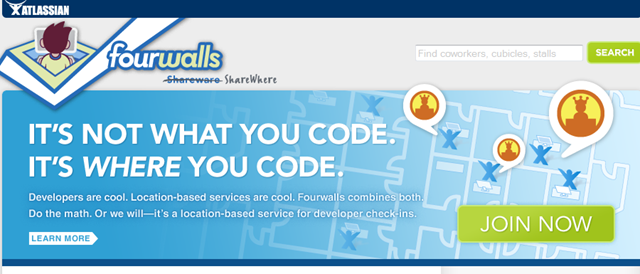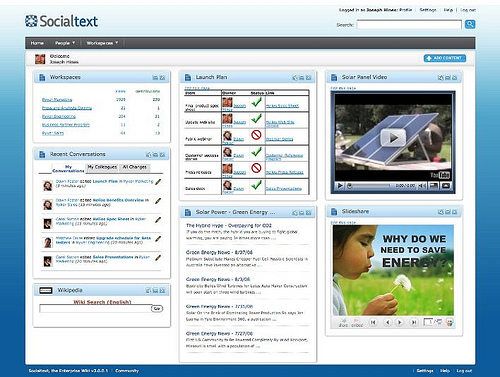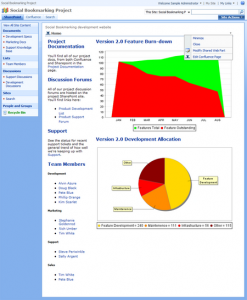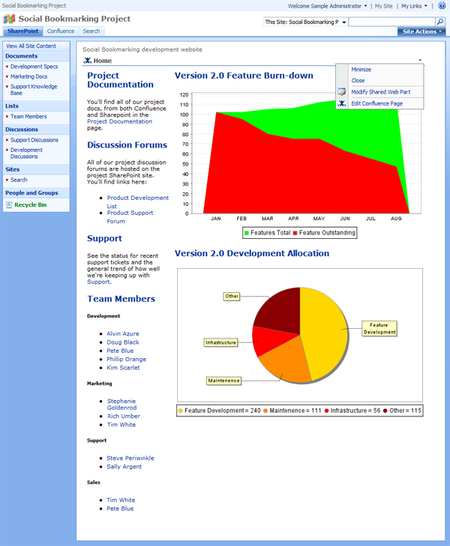It’s nice to see competitors come together to bring the most popular timesinks productivity boosters to the Enterprise.
We’ve long been predicting Foursquare would soon hit the Enterprise, and no the wait is over, with Atlassian releasing Fourwalls.
There’s a lot we can learn from this app – otherwise how would I know that @barconati spends way too much time in the kitchen? (unless he is cooking a new Confluence soup).
Let’s not forget competition – how could archrival Socialtext leave this field to Atlassian? No way… and there they are, releasing Chatroulette for the Enterprise.
A true revolution in Randomized Productivity Management (RPM) 🙂
(Cross-posted @ CloudAve )








 Thingamy could possibly be a handy tool for consultants, system integrator firms – but they all have their own army of programmers, toolsets..etc, which makes it an awfully hard sell, IMHO.
Thingamy could possibly be a handy tool for consultants, system integrator firms – but they all have their own army of programmers, toolsets..etc, which makes it an awfully hard sell, IMHO.

 )
)



 (Updated)
(Updated) Of course JotSpot had the right to do this, these were not paying customers (yet), and a beta is a beta, after all. But a beta program is a mutual effort, and especially early on requires a lot of time and effort from the customers, so it’s clear that these customers may feel let down. While most competitive migration offers are hosted solutions, it’s this specific “betrayed” group that
Of course JotSpot had the right to do this, these were not paying customers (yet), and a beta is a beta, after all. But a beta program is a mutual effort, and especially early on requires a lot of time and effort from the customers, so it’s clear that these customers may feel let down. While most competitive migration offers are hosted solutions, it’s this specific “betrayed” group that 
 … but Joe Kraus, having sold Jot$pot to Google. The source was credible but of course we had already heard about a Yahoo acquisition, then eBay .. so who knows, after all.
… but Joe Kraus, having sold Jot$pot to Google. The source was credible but of course we had already heard about a Yahoo acquisition, then eBay .. so who knows, after all.

Recent Comments